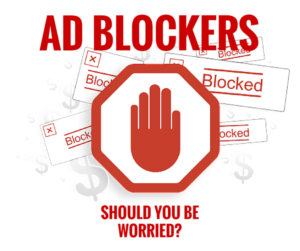The Limitations of Online Marketing & The Agony They’re Creating
There is zero doubt regarding the inevitable takeover that technology poses over the world. Everything as we know it is in somehow adapting to the digitally automated era in one way or another.
I’m not sure if I’m more terrified or more excited for the idea that we’ll be interacting with AI robots on the daily. Either way, it’s bound to happen so make sure you watch “I-Robot” a few more times just incase.
I can’t wrap my head around the fact that people at one point in time actually had to look up something in books when they needed to locate certain information, thank you Google. Apologies to the Amish community, not like they’ll see this anyway (severe lack of computer access).
When the computer was first introduced to the world in 1975, everything changed and it created a snowball effect towards a “Skynet” civilization. Cue Terminator fans.
With that being said, it’s quite obvious that most of if not everything is leaning towards reliance on technological foundations. From entertainment to business, users are depending more and more each day on their ever-expanding digital lifestyle.
Even marketing, a business cornerstone since day 1 has transpired into what’s known as Online Marketing thanks to the many technological breakthroughs.
Marketing, a concept that dates back thousands of years (selling rock tools and loincloths), has evolved and developed over time but still holds concepts from the beginning that are still being used to this day.
Again, the world is diving head first into a digital age and companies and countries that aren’t on board are falling behind…for the most part.
Let’s take a deeper look at Online Marketing, shall we? How perfect really is it?
Yes, ever since the 90’s when Seinfeld was king of the television, Online Marketing began to take reign. At that time, marketing experts entered the bizarro world where their lives got flipped turned upside down. I hope these 90’s references are hitting most of you, if not, I apologize.
Moving on.
Money spent on Online or Digital Marketing increased and continued to increase to the point where about half of the money companies spent was going towards expanding their online presence.
But like everything, nothing is perfect.
Businesses began to notice imperfections and while Online Marketing is extremely useful today, there are numerous areas and goals that it simply cannot reach creating limitations of online marketing.
But what are they?
What Are The Limitations of Online Marketing?
Here are 4 examples of marketing that online advertising will never be able to adapt to.
1) Scams

(Image Credit: Art Bell)
Not everyone in the world is a good person. You know that, I know that. It’s okay, we’re doing the best we can. There are many, many individuals out there who are using the internet to steal, corrupt, and abuse the innocent in areas known as “cyber crimes.”
Cyber crimes occur about 3x per minute equating to 1.5 million annual cyber crimes each year. In 2014, 47% of Americans had their identity stolen by computer hacking professionals which led to a total of $18 billion in credit card fraud. That’s Billion. With a “B.” Terrifying
The reason that these staggering statistics are relevant is because it truly depicts the dark side of the internet that can very easily ruin a family’s life. This fear instills hesitation by countless people completely and utterly negating them of any online marketing value.
Not to mention the fact the aforementioned black-hat hackers can break into a company’s server, mess around, and possibly destroy a business’s brand image with ease.
2) Costs

(Image Credit: Great Bay Software)
Advertising online is far from cheap. You need computers, you need servers, hardware, you need time and digital experts, you need web site designers, maintenance, hosting fees, content distributors, the list goes on and on and on… All of these costs are mandatory when advertising online which is starting to show various pitfalls.
The per-view price of digital advertising is dropping and continues to drop according to Canadian Business who goes on to say that “the failure of paywalls and the rise of ad blockers, it’s looking increasingly clear that print publications merely converting their operations to digital may not be the answer. They just won’t be able to earn enough revenue to keep the lights on.”
Planning and effectively executing online marketing strategies has proven to be costly and occasionally, ultimately unfruitful which is a massive limitation of online marketing. There are new programs and new softwares that are constantly being developed that can limit an online ad’s exposure leading me to the next limit of online marketing.
3) Ad Blockers

(Image Credit: Word Stream)
An online ad is only useful if it’s seen, right? The answer is yes. If an advertisement isn’t seen, than what’s the point? Nothing.
Imagine an online advertisers worst nightmare where Jason X, Freddy Krueger, and the guy with the chainsaw all team up one horrifying side. Those 3 are the equivalent of what’s referred to as Ad Blockers.
Ad blockers are pieces of software that prohibit advertisements from being shown on a page and online ads, which contribute about 90% of Google’s total revenue, is how companies get their product and brand out to the masses.
Total Global usage of ad blockers has increased year over year and for example has
risen globally 41% from 2014-2015. More specifically, Ad block use on Google’s browser has increased 51% from 2014 to 2015.
Why is this important? Who cares about ad blockers? Online marketers do. Ad Blockers are putting severe limitations on online marketing.
“According to PageFair and Adobe, the economic cost of ad blocking—in terms of lost ad revenue—will top $21 billion in 2015 and nearly double again next year” says Fortune.
Print agencies, like that of Pro Media, can’t be avoided like that of digital ads. There isn’t an ad blocker that exists for print which sparks the discussion, with the unavoidability of print ads, can we see a comeback for print marketing recognition? Easily.
With the possibility of paying for an ad that won’t be seen, brands are starting to retreat back to the conventional marketing technique that has proven to be beneficial.
4) The Internet Itself
Much similar to what was just said, how can an ad be proven effective if no one sees it? It can’t. Which puts online marketing at a colossal disadvantage as half of the world’s population is without internet.
50% of the world won’t see the ads which means less exposure and less conversions. While it goes without saying that there are a large number of individuals who search the web daily, there are still a vast amount of people who use traditional forms of advertising and marketing to help them make a purchasing decision.
There’s also the undeniable feeling of wariness when it comes to the internet. You hear all these stories about hacking and invasion of privacy and people watching you through your web camera, it’s haunting and creates a feeling of uncertainty for some which is bad news in the marketing industry.
This also somewhat ties back to the “scammy” aspect of online ad presence. Is a company’s site safe? Is it hacked? If I put my credit card information in the form will I wake up with negative 10 grand in my account and have my wife leave me? I’m not married or anything but I’ve heard it happens.
The internet is a glorious, marvelous, wonderful creation that has undoubtedly created an immeasurable amount of goodness but being able to acquire trust to the point where you convey enough confidence to sell something, is challenging.
Too many people prefer and always will prefer to test a product in real time in the real world before they purchase something.
So all in all, how can the limits of online marketing affect digital sales?
Towering costs for creating online campaigns will begin to accumulate and over time could potentially see a lack of results.
The looming possibility of encountering a hack attack may deter users from trusting online ads. Before we even get to that stage of worrying though, advertisers need to hope that their ad is seen and not blocked by ad blockers which we learned are increasing in usage year over year.
In conclusion, society will continue to break barriers and technological discoveries are sure to ensue. It’s human nature to move forward. It’s written in our genetic code to keep pushing forward.
For the most part, that’s an amazing thing. When it comes to areas such as marketing, however, sometimes the proven, conventional methods are what works best.
Conventional methods of advertising being Print, Radio, and Television will be sure to remain forces to reckon with for years to come.


